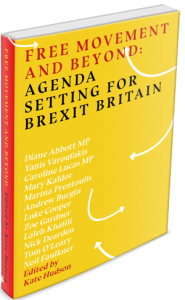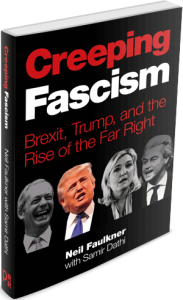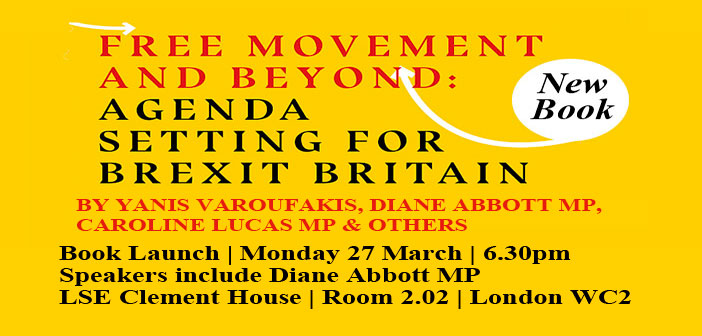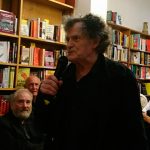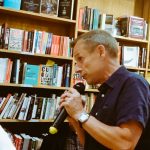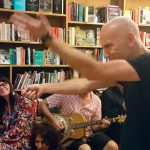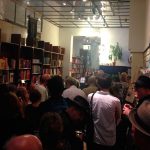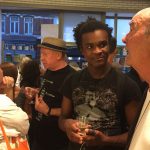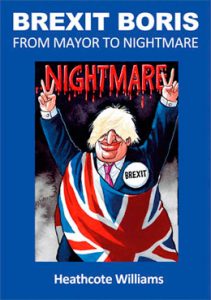This vulnerable legacy should remind us that what we really need is a strong and unapologetic progressive to lead us. What we need as well is a relentless grassroots movement to hold that leadership accountable.
On the night of 4 November 2008, Barack Obama was elected on a platform of “hope” and “change”. He was hailed as a “uniter” in an age of “dividers”. I experienced a political awakening that night. I watched as the hope that President Obama represented was tempered by the shocking passage of Proposition 8 by a majority of voters in California. This reversed a major marriage equality court victory from earlier that year.
Throughout his two terms in office, these types of contradictions would persist. Optimism and hope would be met with backlash and hate. He faced unparalleled resistance from his opponents, many of whom wanted him to fail.
I remember during his first inauguration, on an icy January morning in 2009. I sat on the floor of a military headquarters office in Fort Drum, New York. With a dusty overhead television showing the ceremony, I sat, working in support of a half dozen military officers. We had our weapons ready, and our rucksacks heavily packed. Selected as the active duty army unit to deploy to Washington DC in case of an emergency, we were prepared for rapid deployment.
Ironically, many of the officers and enlisted personnel that were selected for this security detail openly despised President Obama. The seething vitriol and hatred simmered quietly in that room. In retrospect, it was an ominous foreshadowing of things to come.
On domestic issues, his instinct, as former First Lady Michelle Obama explained at the Democratic national convention this past summer, was to “go high” when his opponents would “go low”. Unfortunately, no matter how “high” the former president aimed to be, his opponents aimed to undermine him anyway. There was absolutely no “low” that was too low to go.
Even when they agreed with him on policy, they resisted. For example, when it came to healthcare reform, Obama opened the debate starting with a compromise. His opponents balked. They refused to move an inch. When he would push for the concessions they asked for, they only dug in deeper in opposition. Even when he tried proposing a bill that had been proposed by opponents years earlier.
When it came to foreign policy, even though he was only carrying out the expanding national security policies of the previous administration, they would ceaselessly criticize him for being too weak, or too soft or too sympathetic. After months of comprise on his end, they never cooperated a single time.
In December 2009, I sat in a hot and stuffy plywood room outside Baghdad, Iraq, as President Obama made speeches. He argued that military action was necessary. An unusual statement to present while receiving the world’s most prestigious peace prize. Yet, the people around me still spoke about him quietly, with a strong criticism, and even sometimes, pure disgust.
In November 2012, when President Obama was re-elected, I sat in a civilian jail cell in suburban Baltimore, awaiting a court martial hearing. Surrounded by a different crowd of people, the excitement and elation of his re-election was genuine. Even among those being penalized merely for being disadvantaged or a minority. Even in those unbearably unfair circumstances, there was genuine hope, faith and trust in the president.
For eight years, it did not matter how balanced President Obama was. It did not matter how educated he was, or how intelligent he was. Nothing was ever good enough for his opponents. It was clear that he could not win. It was clear that, no matter what he did, in their eyes, he could not win.
In the aftermath of the deadly shooting at the Pulse nightclub in Orlando that took the lives of nearly 50 queer and brown people, it took Obama over 300 words of his speech to acknowledge the queer community, and even then, as an abstract acronym.
Never did he acknowledge the particularly painful toll on the Puerto Rican and wider community that was also navigating through this horrific tragedy. Even in the midst of a shocking and horrific tragedy, he attempted to comprise with opponents who were uninterested and unwilling to meet him halfway.
Now, after eight years of attempted compromise and relentless disrespect in return, we are moving into darker times. Healthcare will change for the worse, especially for those of us in need. Criminalization will expand, with bigger prisons filled with penalized bodies – poor, black, brown, queer and trans people. People will probably be targeted because of their religion. Queer and trans people expect to have their rights infringed upon.
The one simple lesson to draw from President Obama’s legacy: do not start off with a compromise. They won’t meet you in the middle. Instead, what we need is an unapologetic progressive leader.
We need someone who is unafraid to be criticized, since you will inevitably be criticized. We need someone willing to face all of the vitriol, hatred and dogged determination of those opposed to us. Our opponents will not support us nor will they stop thwarting the march toward a just system that gives people a fighting chance to live. Our lives are at risk – especially for immigrants, Muslim people and black people.
We need to stop asking them to give us our rights. We need to stop hoping that our systems will right themselves. We need to actually take the reins of government and fix our institutions. We need to save lives by making change at every level.
